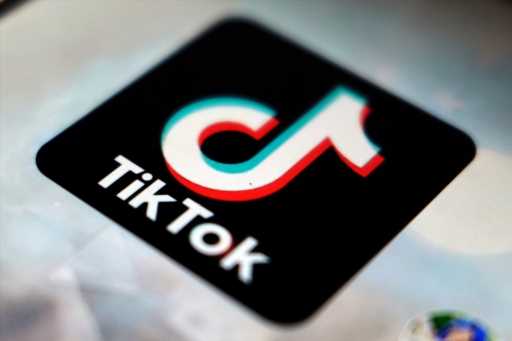TikTok Ban From Apple & Google App Stores Sought By FCC Commissioner: “Serious National Security Threat”
One FCC commissioner wants to ban TikTok from the Apple and Google app stores because of the China-controlled video app’s “pattern of surreptitious data practices.”
Brendan Carr tweeted a letter he wrote last week to Apple CEO Tim Cook and Google/Alphabet chief exec Sundar Pichai that cited “an alarming new report [that] sheds fresh light on the serious national security threats posed by TikTok.” Read his letter here.
In his tweet (see it below), Carr wrote: “TikTok is not what it appears to be on the surface. It is not just an app for sharing funny videos or memes. That’s the sheep’s clothing. At its core, TikTok functions as a sophisticated surveillance tool that harvests extensive amounts of personal and sensitive data.”
He added: “I’ve called on Apple & Google to remove TikTok from their app stores for its pattern of surreptitious data practices.”
Carr’s letter notes that the app “collects vast troves” of sensitive data from its “millions” of American users.
“TikTok is owned by Beijing-based ByteDance — an organization that is beholden to the Communist Party of China and required by Chinese law to comply with the PRC’s surveillance demands,” he wrote in the letter. “Through leaked audio recordings, last week’s Buzzfeed News report revealed that ByteDance officials in Beijing have repeatedly accessed the sensitive data that TikTok has collected from Americans after those U.S. users downloaded the app through you app stores. “Everything is seen in China,” a TikTok official said in the recordings, despite the fact that TikTok has repeatedly represented that the data it gathers about Americans is stored in the United States.”
Carr notes that the app was downloaded from the Apple App Stores and Google App store “nearly 19 million times in the first quarter of this year alone.” ByteDance said in September that TikTok topped 1 billion monthly active users worldwide.
Fueled by an architecture that promotes sharing across other apps, TikTok caught on with younger users because of its catchy mix of quick cutting, music and creative expression. It launched in the U.S. in 2017, several years after ByteDance was formed.
The collection of users’ data landed TikTok on the hot seat with the U.S. government during Donald Trump’s presidency. Officials in his administration viewed the app as a security liability and a tool for Chinese authorities to use to glean sensitive information from Americans.
In 2020, Trump issued an executive order forcing ByteDance to sell TikTok’s U.S. operations to a U.S.-led concern or risk having its app taken offline. A consortium including Oracle and Walmart emerged as the buyer, but TikTok and ByteDance successfully challenged the executive order in court. Several months after taking office, President Joe Biden rescinded Trump’s executive order, saying instead that the White House was reviewing potential national security concerns over apps controlled by China.
In October, a Senate hearing led by Richard Blumenthal (D-CT) grilled TikTok’s Michael Beckerman — along with execs from YouTube-parent Google and SnapChat owner Snap Inc. — on whether they would support the Children and Teens’ Online Privacy Protection Act. Among other things, the legislation would prohibit platforms from collecting personal information of users ages 13-15 without their consent and would limit the collection of personal information from teens.
TikTok’s Beckerman said at the hearing that they “liked” the bill’s approach but that it should include a better way to verify age across the internet.
Must Read Stories
‘Minions: The Rise Of Gru’ Eyes $150M Global Bow As Summer Theatrical Rally Continues
“Unretired” Cameron Diaz To Star With Jamie Foxx In Netflix Action-Comedy ‘Back In Action’
Hugh Grant To Play Zeus In Netflix’s Mythology Series ‘Kaos’; McTeer, Curtis & Thewlis Co-Star
‘Deadline Hallyuwood’ Debuts: Yoo Ji-tae, Park Hae-soo Discuss ‘Money Heist: Korea’ Series
Read More About:
Source: Read Full Article






